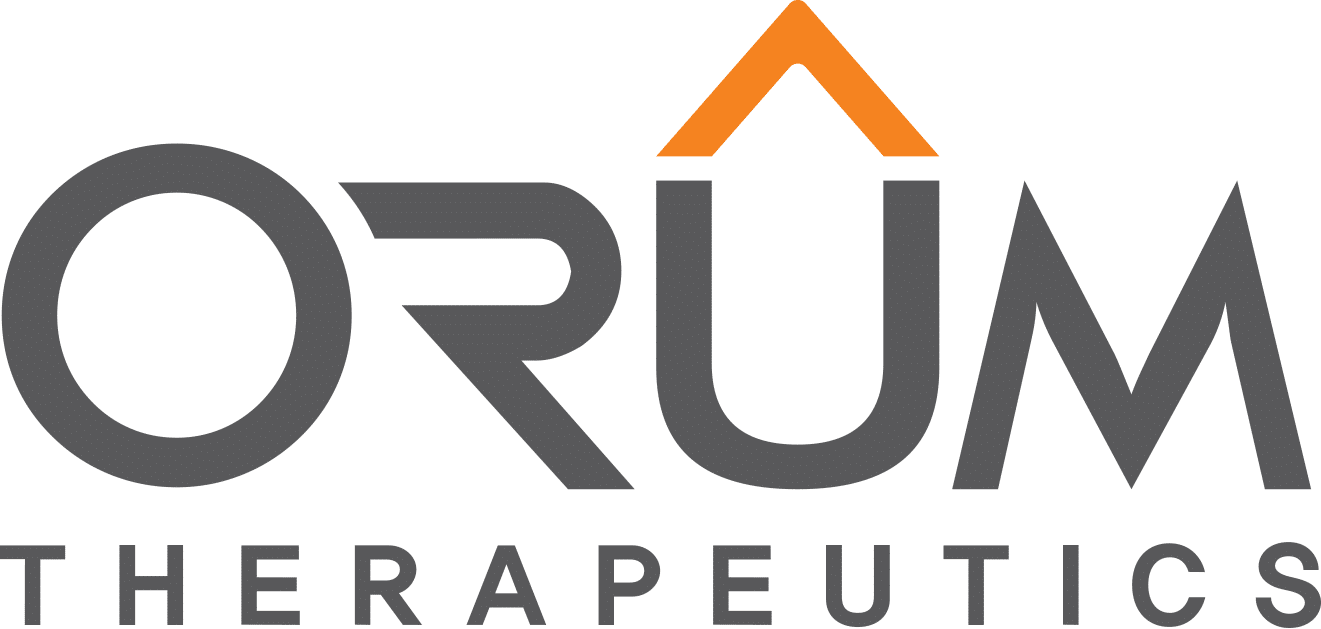预约演示
更新于:2025-05-07
HER2 x GSPT1
更新于:2025-05-07
关联
1
项与 HER2 x GSPT1 相关的药物作用机制 GSPT1抑制剂 [+2] |
非在研适应症- |
最高研发阶段临床1期 |
首次获批国家/地区- |
首次获批日期1800-01-20 |
1
项与 HER2 x GSPT1 相关的临床试验NCT05511844
Phase I Multicenter, Open-Label, First-in-Human Study of ORM-5029 in Subjects with HER2-Expressing Advanced Solid Tumors
This is a Phase 1 first-in-human study of ORM-5029 in participants with HER2-expressing advanced solid tumors. The study consists of two parts: a Part 1 Dose Escalation and Part 2 Dose Expansion.
开始日期2022-10-03 |
申办/合作机构 |
100 项与 HER2 x GSPT1 相关的临床结果
登录后查看更多信息
100 项与 HER2 x GSPT1 相关的转化医学
登录后查看更多信息
0 项与 HER2 x GSPT1 相关的专利(医药)
登录后查看更多信息
2
项与 HER2 x GSPT1 相关的文献(医药)2022-06-15·Cancer Research
Abstract 3933: ORM-5029: A first-in-class targeted protein degradation therapy using antibody neodegrader conjugate (AnDC) for HER2-expressing breast cancer
作者: Choi, Dong-Ki ; Jee, Sang-Mi ; Yi, Yong ; Jeong, Hangyeol ; Kim, Min-Soo ; Palacino, James ; Bai, Chen ; Chang, Ki-Hwan ; Skaletskaya, Anna ; Park, Peter U. ; Kim, Da-Young ; Park, Jiyun ; Kook, Jiae ; Takrouri, Khuloud ; Fishkin, Nathan ; Lee, Pedro ; Yang, Yeonhee ; Wong, Wesley
Breast Cancer Research1区 · 医学
Estrogen receptor and HER2/neu status affect epigenetic differences of tumor-related genes in primary breast tumors
1区 · 医学
ArticleOA
作者: Shinozaki, Masaru ; Vu, Anh-Thu ; Giuliano, Armando E. ; Sunami, Eiji ; Hoon, Dave S. B. ; Sim, Myung-Shin ; Nguyen, Sandy L.
43
项与 HER2 x GSPT1 相关的新闻(医药)2025-04-13
·精准药物
靶向蛋白质降解TPD作为一种新兴的治疗手段,正在从基础研究走向临床应用,为药物开发带来了全新的思路和策略。本文将对发表在Nature Reviews Molecular Cell Biology上的一篇综述文章《Targeted protein degradation: from mechanisms to clinic》进行解读,深入了解这一领域的最新进展和未来方向。一、靶向蛋白质降解的原理与机制TPD的核心在于利用小分子药物诱导特定蛋白质的降解。其最常见的形式是通过小分子介导的泛素化过程,将目标蛋白质与泛素连接酶联系起来,从而标记目标蛋白质进行降解。这一过程主要依赖于泛素-蛋白酶体系统(UPS),其中E3连接酶起着关键作用,它们能够识别并结合特定的蛋白质靶标,进而通过泛素化作用标记这些蛋白质,使其被蛋白酶体识别并降解。文章详细介绍了TPD的多种机制,包括自然存在的分子胶降解剂(molecular glue degraders)和人工设计的PROTAC(Proteolysis Targeting Chimeras)。分子胶降解剂是一类单价小分子,它们能够结合E3连接酶或目标蛋白质,促进E3连接酶与目标蛋白质之间的新相互作用,从而导致目标蛋白质的降解。而PROTAC则是一种双功能分子,包含两个不同的结合基团,一个用于结合E3连接酶,另一个用于结合目标蛋白质,通过连接这两个基团,PROTAC能够将E3连接酶和目标蛋白质拉近,从而诱导目标蛋白质的降解。图1 PROTACs和分子胶降解剂诱导目标蛋白降解的模式二、自然存在的靶向蛋白质降解机制自然界中已经存在一些分子胶降解剂,它们能够诱导蛋白质之间的相互作用,包括促进泛素连接酶与非天然底物的结合。例如,病毒能够劫持宿主的E3连接酶,通过小肽或蛋白质改变泛素连接酶的底物特异性,从而降解宿主的靶标蛋白质,增强病毒的感染性和病毒粒子的产生(图2a和2b)。此外,植物中的生长素(auxins)也能够作为一种分子胶,通过与E3连接酶复合体结合,诱导早期生长素响应蛋白的降解,从而调控植物的生长发育(图2c)。图2 生物分子诱导降解的自然方式示例三、靶向蛋白质降解的早期探索在药物研发领域,TPD的诞生标志着一种革命性治疗策略的出现。这一理念最早在2001年由Sakamoto团队提出,他们设计出首个蛋白水解靶向嵌合体(PROTAC)分子——Protac-1。这一分子由两部分组成:一端是结合目标蛋白MetAP-2的配体,另一端是招募SCF泛素连接酶的肽段,中间通过连接子相连。尽管Protac-1在细胞裂解液中成功诱导了MetAP-2的降解,但由于肽段稳定性差且难以穿透细胞膜,其应用受到了限制。真正的突破发生在2008年,Crews课题组开发了第一个全小分子PROTAC。他们利用雄激素受体(AR)的配体与MDM2抑制剂通过化学连接子结合,成功在细胞内实现了AR的降解。这一成果证明了小分子PROTAC的可行性,但也暴露了早期PROTAC的局限性,如分子量过大和细胞渗透性差等问题。随后的研究聚焦于优化E3泛素连接酶的配体。2012年,基于HIF-1α羟基脯氨酸结构的VHL配体被开发出来,显著提升了PROTAC的效率和特异性。与此同时,沙利度胺及其衍生物被证实可高效结合CRBN,为PROTAC设计提供了另一类重要工具。这些进展使得PROTAC技术逐渐成熟,并催生了如ARV-110和ARV-471等进入临床试验的候选药物。早期的探索不仅解决了PROTAC的分子设计难题,还为后续的分子胶降解剂和其他新型降解技术奠定了基础。如今,TPD已成为药物研发的热点领域,为癌症、神经退行性疾病等难治性疾病的治疗带来了新的希望。四、意外发现的蛋白质降解剂:从偶然到突破在靶向蛋白质降解(TPD)的发展历程中,许多关键突破并非来自精心设计的实验,而是源于科学探索中的意外发现。其中最著名的例子莫过于沙利度胺(thalidomide)及其衍生物的作用机制解析。这种上世纪50年代作为镇静剂使用的药物,因其严重的致畸性被撤市,却在几十年后意外成为多发性骨髓瘤的革命性疗法。2010年,科学家们发现沙利度胺及其衍生物(如来那度胺、泊马度胺)能够结合E3泛素连接酶CRBN,并诱导转录因子IKZF1和IKZF3的降解。这一发现不仅解释了这类药物的治疗机制,也揭示了其致畸性的根源——它们同时会降解发育关键蛋白SALL4。这种"分子胶"的作用模式,即小分子通过重塑蛋白质相互作用界面来诱导靶蛋白与E3 连接酶的结合,为TPD领域开辟了新方向。另一个意外发现的典型案例是抗癌药物indisulam。这款最初作为细胞周期抑制剂的磺胺类药物,后来被证明能够招募DCAF15连接酶来降解剪接因子RBM39。结构生物学研究显示,indisulam在DCAF15和RBM39之间充当"化学桥梁",稳定两者间的相互作用。这种机制与经典的分子胶有所不同,展现了小分子诱导蛋白质降解的多样性。最令人惊讶的发现或许要数激酶抑制剂CR8的故事。这个CDK抑制剂被意外发现能够介导细胞周期蛋白K的降解,但机制却与传统认知大相径庭——CR8并不直接连接E3连接酶和靶蛋白,而是通过改变CDK12的构象,使其意外获得与DDB1结合的能力。这种非典型的降解模式再次拓展了人们对分子胶的理解边界。五、新型分子胶降解剂的发现近年来,分子胶降解剂的发现已成为靶向蛋白降解领域的重要研究方向。沙利度胺衍生物和Indisulam等分子胶降解剂最初是通过回顾性研究被偶然发现的,这促使科学家们开始系统性探索新型分子胶,以扩大潜在靶点的覆盖范围。在早期理性设计分子胶的案例中,研究人员通过增强β-catenin与其E3连接酶SCFβ-TrCP的相互作用,开发出小分子NRX-1933(图3a),该化合物能够绕过β-catenin降解所需的磷酸化依赖途径。经过进一步优化得到的NRX-252114显著提高了对特定磷酸化β-catenin的招募和泛素化效率,展现了分子胶技术在靶向致癌蛋白方面的潜力。另一种重要策略是对已知具有分子胶活性的E3连接酶(如CRBN)的配体进行化学修饰。通过对CRBN的戊二酰亚胺配体进行结构改造,研究人员成功开发出靶向IKZF2转录因子的高效降解剂NVP-DKY709和ALV系列化合物。这些经过结构优化的分子胶不仅展现出高度选择性,还能够区分高度相似的蛋白家族成员,其中部分候选药物已进入临床开发阶段。与此同时,沙利度胺衍生物的应用范围也在不断扩展,通过表型筛选发现的GSPT1靶向降解剂,以及优化后的来那度胺衍生物CC-92480,都显示出分子胶技术在靶向非锌指蛋白方面的广阔前景。随着研究的深入,新型筛选技术为分子胶发现提供了强大支持。研究人员开发了多种创新方法,包括利用基因编辑细胞系结合表型筛选、整合大规模小分子与遗传依赖性数据,以及应用DNA编码化合物库等高通量技术。这些技术进步不仅加速了新型分子胶的发现,也为拓展可成药靶点空间提供了新思路。当前,分子胶降解剂的研究正处于快速发展阶段,其在疾病治疗中的应用潜力正在被不断发掘,未来有望为肿瘤等难治性疾病提供更精准的治疗策略。六、靶向降解的变体尽管TPD领域正在追求的大多数机制主要集中在新相互作用的诱导上,但将它们视为单一机制是不正确的。事实上,这个概念存在许多变体,导致不同的生物学和临床效果。内源性小分子诱导的核受体新相互作用:核受体是一类结构相似的转录因子,其活性受配体调控。部分核受体(如视黄酸受体α、糖皮质激素受体和雌激素受体)在配体结合后会通过蛋白酶体途径降解。虽然这些配体并非传统意义上的分子胶,但它们能诱导核受体构象变化,暴露出保守的疏水裂隙,进而被核共激活因子(NCOA)识别并激活下游转录。然而,该疏水裂隙也可作为一种遮蔽型降解信号(degron),被HECT家族E3泛素连接酶UBR5识别,从而与NCOA竞争结合核受体,促使其降解。这一过程中,核受体的降解信号受到双重屏蔽:一方面在非活性状态下受螺旋12的位阻保护,另一方面在配体结合后被NCOA直接占据。选择性雌激素受体降解剂(SERD)是一类通过不同机制靶向降解雌激素受体(ER)的核受体配体,用于治疗HER2阴性、激素受体阳性乳腺癌。氟维司群作为经典SERD,其结构在雌二醇骨架上引入疏水性长链,通过系统性化学修饰优化而成。尽管多种SERD被开发,但直至2023年1月依拉司群才成为第二个获批的SERD。SERD研发成功率较低,部分原因在于其ER拮抗和降解机制复杂。例如,氟维司群的主要抗雌激素效应可能并非直接降解ER,而是显著抑制ER在细胞核内的迁移。研究发现,不同结构的SERD通过不同途径降解ER:丙烯酸侧链类SERD依赖SUMO化修饰和E3连接酶RNF111,而碱性侧链类则通过UBR5介导的类似雌二醇的降解途径。SUMO化修饰可能使ER被RNF111识别并进一步泛素化,但其临床意义仍需深入研究。小分子共价降解剂:近年来,共价配体技术为靶向蛋白降解(TPD)领域提供了新的策略。这类分子能够通过共价或可逆共价反应直接修饰泛素-蛋白酶体系统(UPS)的组分,从而改变蛋白相互作用网络,或作为PROTAC的招募手柄。例如,天然产物宁宾内酯(nimbolide)被发现通过共价修饰E3连接酶RNF114的C8半胱氨酸残基,干扰其底物识别能力。基于这一机制,研究人员将宁宾内酯改造为PROTAC的E3配体,成功靶向降解转录调控因子BRD4。共价片段筛选(FBLD)技术进一步推动了共价降解剂的开发。通过筛选具有广泛半胱氨酸反应活性的共价片段,研究人员发现了与E3连接酶(如DCAF16)结合的活性位点,并将其与可逆抑制剂(如靶向BRD4或FKBP12的分子)偶联,构建出新型PROTAC。共价修饰E3连接酶相比传统可逆PROTAC可能具有更持久的活性,因其配体驻留时间与E3的自然周转时间相耦合。目前,针对DCAF1、DCAF11、RNF116等E3连接酶的共价降解剂已被陆续报道。此外,在筛选靶向BRD4的分子胶时,研究人员意外发现一类基于JQ1(BET溴结构域抑制剂)的共价分子能够招募CUL4DCAF16至BRD4的第二溴结构域(BRD4BD2),形成“模板辅助共价修饰”复合物。冷冻电镜结构解析表明,DCAF16的第58位半胱氨酸是共价修饰的关键位点。另一项研究则报道了双功能分子IBG1,它能同时结合BRD4的两个溴结构域,诱导构象变化并形成DCAF16的新底物界面(图3b)。值得注意的是,这些分子最初在基于DCAF15配体的PROTAC筛选中被发现,后通过CRISPR筛选证实其依赖DCAF16发挥作用。这些研究不仅揭示了共价降解剂在靶向“不可成药”蛋白方面的潜力,也强调了蛋白-蛋白相互作用的复杂性。未来需进一步优化共价修饰策略,并谨慎验证降解机制,以推动其向临床转化。通过小分子诱导聚合降解:近年来,研究发现某些小分子可通过诱导靶蛋白聚合,进而引发泛素化-蛋白酶体降解。例如,小分子化合物BI-3802能诱导B细胞淋巴瘤蛋白6(BCL6)形成聚合物而非简单聚集。通过荧光标记和电镜观察,研究人员发现BI-3802处理后,BCL6首先形成荧光焦点并逐渐消失,进一步结构解析揭示该分子在BCL6的BTB结构域间形成对称的新相互作用界面,促使同源二聚体自聚合(图3b)。这种聚合状态增强了E3连接酶SIAH1/2的招募,最终导致BCL6被降解。类似的机制也见于急性早幼粒细胞白血病(APL)的治疗。APL由PML-RARA融合基因驱动,而三氧化二砷(ATO)和全反式维甲酸(ATRA)通过不同途径降解该致癌蛋白:ATO诱导PML和PML-RARA寡聚化,促进其与泛素结合酶UBC9相互作用并降解;ATRA则通过激活RARA的核受体功能(如前述激素受体降解机制),使其暴露降解信号而被蛋白酶体清除。这些发现不仅揭示了蛋白聚合作为降解触发信号的新范式,也为开发针对难治性疾病的降解疗法提供了新思路。直接招募靶蛋白至蛋白酶体的降解新策略:传统上,靶向蛋白降解(TPD)依赖于泛素化标记,但最新研究探索了绕过泛素化、直接利用蛋白酶体降解的途径。一项突破性研究采用mRNA展示技术,筛选出能与蛋白酶体亚基PSMD2高亲和力结合的大环肽MC1(纳摩尔级结合力)。冷冻电镜结构解析显示,MC1结合在PSMD2的C端结构域与螺旋结构之间的独特区域,靠近26S蛋白酶体的底物通道入口。研究人员将MC1与高亲和力的BRD4配体(BET抑制剂)偶联,成功将BRD4直接招募至蛋白酶体,并实现其降解。这一策略突破了传统PROTAC依赖E3连接酶泛素化的限制,为靶向降解提供了全新思路,尤其适用于难以泛素化的靶点。未来,该技术可能拓展至更多疾病相关蛋白,推动蛋白降解疗法的创新。七、拓展E3连接酶在靶向蛋白降解中的应用目前,PROTAC技术主要依赖CRBN和VHL这两种E3连接酶,而能直接结合E3连接酶的小分子配体仍较为稀缺,限制了PROTAC对新连接酶的探索(图3c)。尽管CRBN和VHL在降解效率和速度上表现优异,但利用其他E3连接酶可能带来独特优势,例如:(一)组织特异性降解:通过选择仅在神经或造血系统表达的E3连接酶,可增强PROTAC的组织靶向性,减少脱靶效应。(二)亚细胞定位调控:核内或染色质结合的E3连接酶可用于精准降解转录因子等难成药靶点。近期研究已开始系统鉴定组织特异性E3连接酶及其配体,为拓展PROTAC应用奠定基础。然而,当前挑战在于如何高效发现特异性结合新E3连接酶的小分子。开发能系统性筛选“配体-连接酶”对的平台,将成为推动PROTAC临床转化的关键。图3 不同的分子机制导致底物募集以进行靶向蛋白质降解八、靶向蛋白降解的选择性与特异性小分子蛋白降解剂(如PROTAC和分子胶)的选择性受多种因素影响,包括:(一)E3连接酶与靶蛋白的结合特性:不同E3连接酶(如CRBN或VHL)会影响降解的靶标范围,且PROTAC与靶蛋白的结合亲和力并不完全决定降解效率。(二)三元复合物的形成与泛素化效率:有效的靶蛋白泛素化是降解选择性的关键。(三)组织特异性表达:靶蛋白和E3连接酶的组织分布可影响降解效果,例如VHL在血小板中低表达可减少BCL-XL靶向PROTAC的毒性。(四)亚型选择性设计:针对高度相似靶点(如CDK4/CDK6、BRG/BRM)开发亚型特异性PROTAC可进一步提高选择性。尽管分子胶和PROTAC通常被认为具有高度特异性,但研究发现基于CRBN的降解剂可能脱靶降解IKZF1或SALL4等蛋白,强调需通过靶向和无偏筛选全面评估脱靶效应。此外,降解选择性还受时间、动力学和底物竞争的影响,需在临床前研究中系统优化。九、临床观点尽管靶向蛋白质降解(TPD)领域已涌现出多种创新机制,但目前获得FDA批准的药物仍屈指可数。临床研发管线中的分子却展现出丰富多样性,如表1所示,尤其是针对IKZF1/3等靶点的分子胶降解剂(如CC-92480、CFT-7455等)已进入I/II期试验,其应用从血液肿瘤逐步拓展至实体瘤。PROTACs凭借模块化设计优势,在靶点覆盖上更为广泛,针对雄激素受体(ARV-110)、雌激素受体(ARV-471)及BTK(NX-2127)等靶点的候选药物正针对血液瘤、实体瘤和自身免疫疾病开展临床试验。沙利度胺类似物的成功案例为TPD提供了重要验证,但其胚胎毒性风险也警示着该技术的潜在挑战。分子胶虽具有优异的药代动力学特性,但发现过程仍依赖偶然性;而PROTACs虽设计灵活,却面临分子量大、组织靶向性不足等问题。耐药性机制(如CRBN突变、外排泵MDR1上调)和脱靶效应(如沙利度胺衍生物意外降解SALL4)成为临床转化的重要障碍。值得注意的是,常规动物模型对某些降解靶点不敏感,这增加了毒性评估的复杂性。TPD的独特优势在于"事件驱动"的药理学特性,但其治疗潜力仍受限于:某些疾病需要同时抑制通路活性;组织特异性递送效率不足;以及降解后可能触发的代偿机制。新兴应用领域如神经退行性疾病(靶向Tau蛋白)和感染性疾病(抗病毒BacPROTACs)正在拓展TPD的疆界,但需要开发更精准的降解策略。未来突破将依赖于E3连接酶工具箱的扩充、组织特异性递送技术的创新,以及对降解生物学更深入的理解。这一领域正站在从概念验证向全面临床获益转化的关键节点。表1 Clinical trials utilizing degrader molecules十、靶向蛋白质降解的未来展望靶向蛋白质降解(TPD)领域已展现出令人振奋的多样性,从传统的PROTACs和分子胶降解剂,到新兴的抗体靶向嵌合体(AbTACs)、自噬靶向嵌合体(AUTACs)和溶酶体靶向嵌合体(LYTACs)等技术不断涌现。尽管这些创新方法前景广阔,但近期进入临床开发的主流仍将是PROTACs和分子胶降解剂。分子胶降解剂因其分子量小、生物利用度高和效力强而独具优势,但其发现仍主要依赖偶然性,且结构-活性关系极为敏感,单个原子的改变就可能完全改变底物特异性。相比之下,PROTACs的模块化设计使其能够更系统地开发,但大分子量带来的药代动力学挑战仍需长期优化。值得注意的是,PROTACs的靶点多为已被传统方法靶向的蛋白,因此需要更强的临床优势证据。该领域的快速发展正在催生更广泛的邻近诱导药理学概念,包括调控转录/表观遗传的TCIPs、诱导蛋白磷酸化的PhosTACs、去泛素化的DUBTACs等。这些技术将小分子诱导邻近的应用从单纯的蛋白质降解扩展到更广泛的蛋白功能调控。未来,随着对天然降解机制的深入挖掘和人工智能等技术的应用,TPD有望突破现有"不可成药"靶点的限制,为癌症、神经退行性疾病等难治性疾病带来变革性疗法。正如来那度胺等已获批药物所展示的,即使偶然发现的降解剂也能为患者带来显著获益,这为TPD的未来发展提供了最有力的证明。全文链接:https://doi.org/10.1038/s41580-024-00729-9
蛋白降解靶向嵌合体
2025-01-24
·同写意
2024年,医药行业技术浪潮依然风起云涌。AI技术摘得诺奖桂冠,诸多新兴技术瞄准难成药靶点破土而出。
新的创新技术不仅重塑了传统的研发模式,也激发了市场对未来药物“新可能”的无限期待。
值得关注的是,全球医药行业在新技术领域的快速发展,推动了多个药物类型的交易总额突破150亿美元大关。
尤其是蛋白降解疗法,凭借其独特优势,成为交易市场中的一大亮点。2024年,蛋白降解领域交易数量同比增长62%,共完成26项交易,其中8项交易金额超过10亿美元,位居行业第三。
蛋白降解疗法领域究竟有着什么“过人之处”,能够吸引全球药企的广泛关注?
1
革命性潜力:从“不可成药”到“可成药”
许多人类疾病由异常蛋白质表达驱动,而传统的小分子和抗体药物仅能靶向约20%的蛋白,剩下约80%被视为“不可成药”。然而,靶向蛋白降解(TPD)技术的提出,特别是在分子胶和蛋白降解嵌合体(PROTAC)方面的突破,让这些曾被认为“不可成药”的靶点逐渐变得可及,显著扩展了疾病治疗的范围和可能性。
靶向蛋白降解(TPD)技术正迅速推动药物研发的创新,尤其是在癌症、神经病学和免疫学领域。根据Nature Reviews Drug Discovery发表于2024年11月的最新文章“The targeted protein degradation landscape”,TPD技术的应用近年来不断拓展,从早期的靶向“经典”药物靶点如雌激素受体(ER)到当前聚焦于“不可成药”蛋白质,如Tau、SMARCA2和GSPT1等,极大地提升了可靶向疾病的范围。
随着蛋白降解技术逐渐进入行业视野,有一家公司逐渐从幕后走到前台。据药明康德在投资者日上透露,在这个领域的全球市场渗透率是66%,引发大众关注。是什么让药明康德能够在这个新兴领域脱颖而出,赢得市场和业界的认可呢?
2
入局:深刻洞察技术核心
要在任何新兴领域占据主导地位,必须深刻理解技术核心并进行前瞻布局。
分子胶技术是蛋白降解领域中最成熟且关键的技术之一。目前,已上市的三款蛋白降解药物均基于分子胶技术。由于其突出的治疗潜力,全球药企也格外注重分子胶领域的布局。
自2023年以来,分子胶领域的交易热度持续攀升,16起超过十亿美元的交易中,有9起都与分子胶相关。例如,达歌生物与武田达成了约12亿美元的合作,SEED Therapeutics与卫材达成了潜在15亿美元的合作协议,Monte Rosa与诺华的合作潜在总额超过22亿美元,Neomorph也与诺和诺德、渤健达成了多个合作协议,潜在总额超过29亿美元。
分子胶管线的快速发展和行业巨头的投资,证明了其在蛋白降解药物研发中的核心地位。这为行业注入了强大的信心,推动了大批生物医药公司投入分子胶药物的研发。
尽管分子胶技术已经相对成熟,但新型分子胶的发现仍是药物研发的核心难点。由于分子胶药物的药化修饰涉及蛋白构象变化,其发现方式主要依赖偶然发现、筛选或药化修饰,面临显著挑战。已上市的三款分子胶药物——如沙利度胺——的分子胶特性都是偶然发现的。因此,构建大规模筛选库成为解决这一难题的关键。
药明康德是最早通过构建高度多样性的分子胶发现平台、解决这一行业核心问题的公司之一。从2016年布局分子胶技术开始,药明康德生物学业务平台早期研发团队已经构建了多样性化合物库,涵盖超过200种合成路线、50亿种不同结构的化合物,提炼了超过6000种不同的生物活性结构,可以显著提高了分子胶筛选成功率。
凭借对蛋白降解技术的深刻洞察,药明康德成功把握住这一新兴技术的发展脉络,特别是对分子胶领域的前瞻性布局,迅速在技术上建立了竞争优势。
3
布局:高质量服务打响品牌
成为行业领跑者,不仅需要抢占先机,更要通过高质量的服务,持续打造信任与口碑。
分子胶的开发流程独特,首先需要发现能够结合E3连接酶的分子,再通过蛋白数据库大规模筛选,找出可降解的蛋白靶点。这种反向开发路径不同于传统药物研发,需要庞大的资源投入和精准的药物设计,显著提升了研发难度。
药明康德通过优化研发流程,打破了从化学合成到临床前测试之间的壁垒,确保各环节无缝对接,大大缩短了研发周期并降低了风险。依靠高效的项目管理和强大的科学家团队,药明康德成功支持了多个业内公认高难度项目,帮助客户攻克创新研发难关。
例如,耶鲁大学Craig Crews教授创立的Arvinas公司,作为蛋白降解疗法领域的先行者,自2016年起便与药明康德开展深度合作。在PROTAC(蛋白降解靶向嵌合体)项目中,药明康德提供了从分子设计到工艺开发的全方位支持,帮助Arvinas突破了多个关键技术瓶颈。依托药明康德的强大CRDMO(Research, Development and Manufacturing)能力,Arvinas的两款候选药物已成功推进临床开发,其中ARV-471临床3期有望近期公布关键结果,早前还吸引辉瑞达成20亿美元合作,成为行业的标杆。
药明康德的整合资源能力和端到端服务模式,使得科学突破能够迅速转化为创新疗法,成为许多行业领军企业背后的强大推手。这种一体化研发能力,让药明康德在行业竞争中具备不可替代的优势。
在Craig Crews教授创立Halda Therapeutics后,药明康德继续为其新一代蛋白降解技术(RIPTAC)的研发提供支持,共同攻克肿瘤耐药性这一难题。依托药明康德完善的平台能力,Halda的研发从早期研究阶段快速推进至临床阶段。2024年,Halda成功完成1.26亿美元B轮融资,计划于2025年将候选药物HLD-0915推向临床。
通过与新锐企业携手合作、用心服务高质量客户以及不断深化长期合作关系,药明康德巩固了其在药物研发领域的深厚实力,为在新兴领域的持续突破奠定了坚实基础。
4
破局:快速响应技术革新
要保持领先优势,关键在于不断突破,始终走在技术创新的前列。
蛋白降解领域的技术创新具有多元化且不断涌现新突破。除了分子胶,另一重要发展方向是异双功能分子。由于其复杂的“三体”结构,设计和合成过程难度较大。
早在2017年,药明康德便开始拓展蛋白降解平台的技术能力,现已全面覆盖10多种双功能分子类型,包括自噬靶向嵌合体(AUTAC)、溶酶体靶向嵌合体(LYTAC)、去泛素化酶靶向嵌合体(DUBTAC)、核糖核酸酶靶向嵌合体(RIBOTAC)、磷酸化诱导嵌合体(PHIC)、抗体偶联降解剂(DAC)等。
自2019年起,PROTAC技术才开始逐渐进入临床开发阶段,至今尚无相关药物获批上市。然而,早在PROTAC技术崭露头角之初,药明康德就与Arvinas紧密合作,支持其ARV-471的开发。这款药物不仅是该领域推进最快的管线之一,更已进入3期乳腺癌临床研究,备受行业关注,有望成为全球首款获批的PROTAC疗法,领跑行业发展。
与此同时,药明康德在另一项新兴的蛋白降解技术——DAC(Degrader-antibody conjugate,抗体偶联降解剂)领域也展现了同样的敏锐洞察和高效赋能能力。
尽管DAC技术在2020年才被学术界首次报道,目前仍处于早期临床阶段,药明康德提前捕捉到这一技术的突破性价值,率先提供支持,助力基因泰克开发出BRD4降解剂GNE-987,并帮助生物技术公司Orum加速了药物研发。韩国Orum公司公开表示,药明康德的合作使其先导化合物的优化周期大幅缩短,显著加快了药物发现速度。得益于这种高效赋能,2022年,Orum的抗体-GSPT1降解剂成为全球首个进入临床试验的DAC候选药物,用于治疗HER2阳性实体瘤,开创了这一领域的里程碑式进展。
无论在哪个蛋白降解技术方向上,药明康德几乎都能成为全球最早提供赋能支持的公司,助力合作伙伴走在行业前沿。
在2024年,新型蛋白降解技术如雨后春笋般竞相涌现,频繁亮相Nature、Science 、Cell等国际顶级期刊。其中,有十大技术尤为值得关注:分子内二价胶水(IBG)利用顺式机制靶向蛋白结构域,提升降解效果;LIVTAC专注于肝脏蛋白靶向,提高药物的成药性;基于miRNA的Lin28A-PROTAC为乳腺癌治疗开辟新方法;转铁蛋白受体靶向嵌合体TransTAC则创新性地降解膜蛋白,突破了传统技术的局限;溶酶体降解技术pLYTAC引入人工设计蛋白,能够在活细胞中靶向降解大量疾病相关靶点。
此外,还有TrimTAC专注于多聚蛋白选择性降解,FRTAC利用叶酸受体靶向癌细胞,膜蛋白降解嵌合体Pro-MPD在肿瘤环境中激活降解,分子撬棍molecular crowbar通过构象改变促进Pin1降解,以及DePLT聚焦血小板蛋白调控。这些新技术的出现,不断推动蛋白降解领域的技术创新和应用扩展。
这些新兴技术的不断突破和涌现,不仅展现了蛋白降解领域的无限潜力,也印证了唯有持续创新,才能在激烈的竞争中保持领先地位。
创新不是终点,而是起点。未来,TPD技术将在配体优化、通路设计、药物递送和靶点激活等方向寻求突破,并且向自身免疫和神经生物学等治疗领域纵深拓展。
药明康德通过技术洞察和前瞻布局,快速稳步领跑这一领域,诠释了如何通过创新驱动发展,为行业提供了可借鉴的成功范例。
同写意媒体矩阵,欢迎关注↓↓↓
蛋白降解靶向嵌合体细胞疗法
2025-01-08
·药智网
刚刚过去的2024年,小分子药物再次站到了聚光灯下。
12月,诺华以29亿美元收购小分子药物PTC518,聚焦亨廷顿病;百济神州以18亿美元揽获石药集团的SYH2039,探索实体瘤治疗潜力。这些大额交易,连同年内340起交易合作、730亿美元的潜在交易总额,再次证明小分子药物的战略地位。
2024年,小分子药物迎来了一系列突破性进展,重新定义了疾病治疗的可能性。本文将带您回顾2024年小分子药物领域的几大“高光时刻”,看看它们是如何在医药行业舞台上大放异彩的。
1
小分子药物,一直是行业宠儿
在FDA新药批准中,小分子药物表现依旧亮眼。截止12月23日,美国FDA已经批准57款新药,其中30款为小分子药物,占比超过50%。这一比例在过去近十年中平均为63%,最高达到75%,足以证明小分子药物在新药研发中的基础地位。
2024年,小分子药物的机制创新层出不穷。FDA批准的30款小分子药物中,37%为“first-in-class”疗法,为未满足的临床需求提供新的治疗选择。
百时美施贵宝公司获批的KarXT突破了传统精神分裂症治疗方式,靶向胆碱能受体,成为数十年来首款新机制抗精神病药物,突破了标准疗法阻断多巴胺受体的机制。Ohtuvayre是20多年来首个新机制COPD吸入疗法,作为PDE3/4抑制剂,兼具支气管扩张与抗炎作用,为患者提供更全面的症状缓解。
由于复杂的病理机制和患者的高异质性,非酒精性脂肪性肝炎(NASH)疗法长期缺少进展。2024年FDA还批准了的NASH首款疗法resmetiro,精准靶向甲状腺激素受体(THR)-β实现该领域的治疗突破,显著改善肝脏脂肪堆积、炎症和纤维化,标志着小分子药物在复杂疾病治疗中的独特优势。
不仅在攻克常见病的治疗瓶颈方面创造佳绩,小分子药物也为罕见病带来了“首创”疗法。Voydeya是治疗阵发性睡眠性血红蛋白尿症(PNH)新疗法,首次通过靶向补体系统中的因子D,从源头降低血管外溶血风险;与传统因子C5疗法相比,可大幅减少输血需求。针对罕见的神经退行性溶酶体贮积病——C型尼曼匹克病,arimoclomol通过独特的细胞热休克反应共诱导机制,精准靶向病因,显著延缓疾病进展,填补了该领域的临床空白。
2
小分子药物研发如何借力突围?
现代疾病复杂性和治疗需求的多样性,小分子药物的突破不再是单打独斗,而是越来越依赖医药公司、生物技术企业和研发平台的合作。这种“合力”模式整合了机制探索、技术平台和商业资源,将研发从孤立推进转变为快速迭代的生态体系。
大型药企是小分子药物创新的主要推动力之一。这些企业拥有强大的研发能力和资金支持,能够快速捕捉并推进新兴技术。2024年小分子药物交易和并购合同总金额的前十大案例中,几乎全部有大型药企的身影。诺华出手频繁,完成了四笔交易,总花费超过90亿美元,金额最高的两笔交易分别发生在年初和年末——2月以29亿美元收购德国的MorphySy公司,12月又以29亿美元的交易获得针对亨廷顿病的PTC518药物,展示了其对小分子药物创新靶点的高度关注。
此外,吉利德以43亿美元收购CymaBay,获得其后期产品seladelpar,该药物已于2024年8月获得FDA加速批准治疗原发性胆汁性胆管炎,也是一款“first-in-class”重磅药物。7月,礼来以32亿美元收购了Morphic,坚定不移地进军靶向α4β7小分子药物。
药企不仅通过交易并购扩展其小分子药物的研发布局,探索复杂适应症的新解决方案;同时也积极利用外部研发平台合作,降低成本,提高效率,加速新药面市。
全球一体化的新药研发服务平台,越来越成为众多药企建立深度合作的首选对象。专业研发平台公司是小分子药物创新的中坚力量之一。这些公司通过优化研发流程,连接基础研究与临床应用,推动创新药物的快速发展。例如,药明康德等平台公司不仅提供了从分子设计到生产的一体化解决方案,还通过全球化布局推动行业协作。这种模式不仅降低了研发成本,还大幅提高了研发效率,使得更多具有潜力的创新药物能够快速推进到临床阶段。
除了提供一体化解决方案,采用自动化设备优化流程,正在成为提升药物研发效率和成功率的重要趋势。例如,在生物分析领域,多家公司已开始采用自动化样品处理和数据分析系统,以实现超高精度的药物代谢与毒性研究。一些领先的研发平台,如药明康德,已通过飞克级(10⁻¹⁸)精度的技术,能够识别药物在体内的分解方式、毒副作用及潜在安全风险,这为药物设计的优化和研发成功率的提高提供了坚实基础。
在药物代谢和药代动力学研究(DMPK)方面,行业已广泛应用先进的自动化洗笼机、自动化采血仪、自动化液体工作站及智能IT工具等设备。以药明康德为例,通过将全球顶尖仪器与自动化系统整合,实现了行业领先的研究周转速度。传统的药物早期筛选往往需要数周,而药明康德将其缩短至5-7天。与此同时,用于IND申报的单次实验仅需2周,极大加快了研发进度。
图片来源:药明康德
据公开资料,2024年上半年美国FDA批准的14款小分子中,有3款由药明康德化学业务平台支持;下半年预计药明康德所服务的小分子中还将有3-5款获得美国FDA批准。由行业知名网站“猎药人”从上万个分子中评选出的2023年度10大明星小分子中,7款由药明康德化学业务平台赋能。这些成果源于药明康德在小分子药物研发领域多年的深耕实践和逐步建立的成熟业务能力。
这得益于药明康德成熟的CRDMO模式。其“R”端(Research)业务使得公司能够不断跟随全球范围内具有创新机制的药物,早期介入药物发现阶段,及早抓住创新机遇,并从上游到下游快速形成全链条能力。“R”端处在新药研发早期,普遍投入大,但成功率低,相较于后期投入存在更大的不确定性,但药明康德的CRDMO模式以其海量分子覆盖足以网罗“确定性”并探索“创新性”。
根据药明康德三季报,其化学业务平台当前服务R端客户1,512家,在过去十二个月里为客户成功合成并交付超过45万个新化合物,同比增长7%。通过“R”端持续引流、D和M端的一体化推进,目前全球大约每6个临床期在研小分子,就有1个由药明康德化学业务平台提供服务。2023年全球销售额前十的小分子,4款由药明康德化学业务平台服务生产。
3
新技术如何让小分子药物“逆袭”?
小分子药物一直被认为是传统药物研发的“老大哥”,稳重而可靠,但相比大分子药物的迅猛发展,它们在创新上显得有些滞后。
近两年随着一系列新技术的出现,小分子药物迎来了“逆袭”的机会。从蛋白降解疗法到人工智能的加持,这些创新为小分子药物注入了新的生命力,让它们在解决难治疾病、开辟新靶点等方面展现了巨大潜力。
蛋白降解疗法提供了跨越传统药物研发限制的新路径,特别是在小分子药物的创新中。与传统小分子药物通过抑制蛋白活性来发挥作用不同,蛋白降解疗法利用细胞内天然的蛋白质降解机制,将致病蛋白标记并引导其被降解。这种机制为“不可成药”靶点提供了新可能,特别是那些缺乏可结合口袋的蛋白或多功能复合蛋白。
目前,分子胶和PROTAC(靶向蛋白降解嵌合体)是这一领域的两大核心技术。已有3款分子胶药物成功上市;ARV-471的乳腺癌3期临床研究备受瞩目,有望成为PROTAC领域的首款获批疗法,位居行业前沿。
药明康德在这一领域的布局始于分子胶技术出现的元年,目前已经全面覆盖10多个双功能分子类型,技术竞争力处于行业前沿,支持了全球超过150家企业的研发需求,约占全球市场66%的份额。
图片来源:药明康德
此外,药明康德还通过DEL技术平台(DNA-encoded library)进一步推动蛋白降解疗法的发展。DEL通过将化合物与特定DNA标签相连接,结合高通量筛选技术,可在短时间内快速识别具有潜力的候选分子,大幅提高药物发现的效率和精确性。
耶鲁大学Craig M.Crews教授团队利用药明康德DELight分子库,发现了E3连接酶衔接体蛋白MAGE-A3的苗头化合物,并成功开发了针对MAGE-A3的PROTAC分子。相关研究成果已于2024年8月刊登在《美国化学会杂志》(Journal of the American Chemical Society),再度证明了DEL技术在PROTAC开发中的关键作用。
Carig M.Crews教授作为PROTAC领域的先驱,创立了明星公司Arvinas和Halda Therapeutics。这两家公司的多款蛋白降解药物研发背后,都有药明康德提供的关键技术支持。
DAC(Degrader-antibody conjugate,抗体偶联降解剂)则为蛋白降解疗法开辟了新的发展方向。2020年,这一技术首次被学术界报道,目前虽仍处于早期临床阶段,但进展迅速。药明康德赋助力基因泰克,设计出了一款BRD4降解剂GNE-987。韩国Orum公司CEO曾表示,与药明康德的合作使得它们的先导化合物优化周期缩短,大大加快了药物发现工作。2022年,Orum开发的抗体-GSPT1降解剂成为首个进入临床试验阶段的DAC候选药物,用于治疗HER2阳性实体瘤。
人工智能(AI)正成为推动小分子药物研发突破的核心驱动力之一。通过AI辅助分子设计和机制预测,研究人员能够更高效地筛选出最佳化合物,加速新药的发现进程。
2024年,AI在药物研发领域持续升温。公开信息显示,年内已发生167起相关融资事件,总金额达62亿美元,同比激增76%。其中,初创公司Xaira Therapeutics在4月完成了超10亿美元的种子轮融资,成为本年度获得最大单笔融资的新兴企业之一,显示出资本市场对AI制药的高度认可。
与此同时,医药巨头也在加速布局AI。礼来和诺华分别与英国公司Isomorphic达成总额高达30亿美元的合作协议,目标是利用AI技术开发针对未公开靶点的小分子药物。
AI制药的管线成果同样令人瞩目。目前全球已有64家AI驱动的药企进入临床阶段,覆盖128个候选药物,其中有些已进入3期临床试验。业内预测,首款AI辅助研发的小分子药物或将在未来两年内上市,这将成为医药行业的新里程碑,进一步验证AI在药物研发中的巨大潜力。
2024年,小分子药物再次证明了它们在医药领域的重要地位。小分子药物不再只是传统治疗的延续,而是在精准医学、基因疗法等新兴领域中开辟了新的天地。未来的几年,或许将会是小分子药物焕发新生、迎接更多突破的高光时刻。
声明:本内容仅用作医药行业信息传播,为作者独立观点,不代表药智网立场。如需转载,请务必注明文章作者和来源。对本文有异议或投诉,请联系maxuelian@yaozh.com。
责任编辑 | 华海清
合作、投稿、转载开白 | 马老师 18323856316(同微信)
阅读原文,是受欢迎的文章哦
并购申请上市
分析
对领域进行一次全面的分析。
登录
或

生物医药百科问答
全新生物医药AI Agent 覆盖科研全链路,让突破性发现快人一步
立即开始免费试用!
智慧芽新药情报库是智慧芽专为生命科学人士构建的基于AI的创新药情报平台,助您全方位提升您的研发与决策效率。
立即开始数据试用!
智慧芽新药库数据也通过智慧芽数据服务平台,以API或者数据包形式对外开放,助您更加充分利用智慧芽新药情报信息。
生物序列数据库
生物药研发创新
免费使用
化学结构数据库
小分子化药研发创新
免费使用
